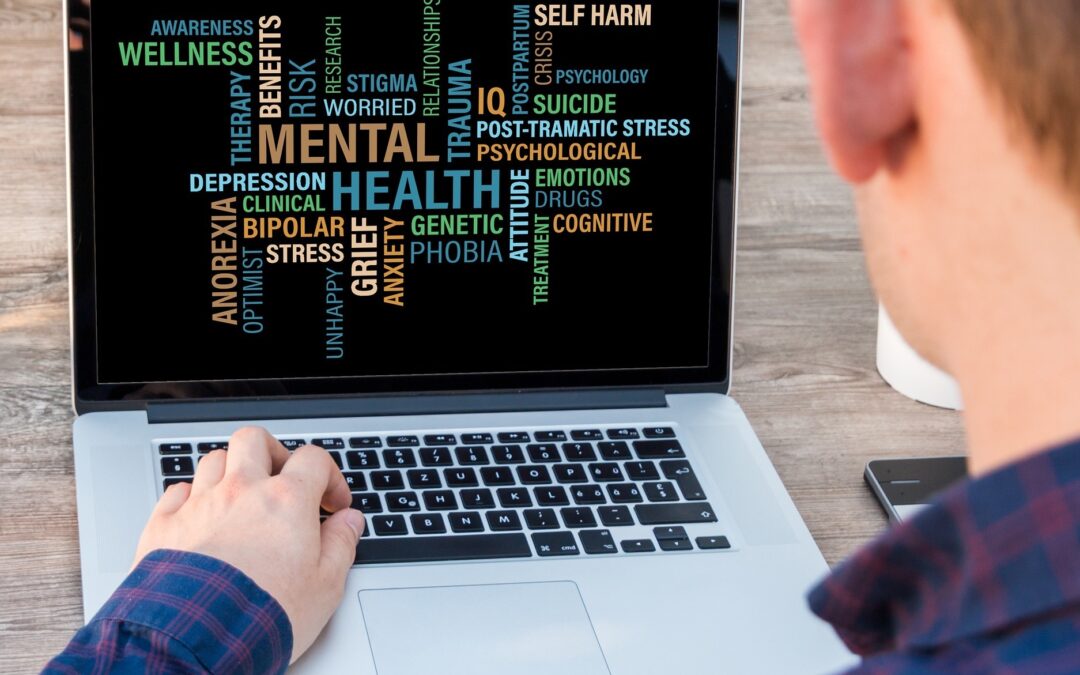Internet access is determined by whether you can afford to pay for it.It can be easily forgotten that low-income households aren’t always able to sustain the monthly cost of internet service. Further, high-speed internet costs even more than lower speeds and is often necessary for lag-free video conferencing. This digital divide is not merely an inconvenience: it has negative consequences for access to mental health care.
Income is the greatest determiner of access to broadband internet. Just over half of Americans making less than $30,000 a year have home broadband. In comparison, 92 percent of households bringing in $75,000 or more per year have home broadband. Although race, age, and level of education play a role in who has home internet, low income is the unifying factor among households without broadband.
Furthermore, those whose income might allow them access to high-speed internet could be unable to do so based on their location. Internet companies often don’t develop the infrastructure for high-speed internet in low-income communities because there is no economic incentive to do so.
An absence of broad digital infrastructure limits accesses to tele-health services. Without the Internet, it becomes impossible to have an online appointment. Low-income households nationwide are disproportionally affected by this limited network availability.
How internet access affects your mental health care options
The digital divide reveals a darker truth: If you cannot afford internet access, you are excluded from digital mental health care.
Telemental health is more important than ever due to Covid-19. The pandemic has disrupted the delivery of mental health care. According to The Commonwealth Fund:
“There is increasing evidence of a mounting surge in mental and behavioral health care needs because of the pandemic…Becausemarginalized groups and people with lower incomes are being disproportionately affected by pandemic-related job losses and social stress, we also could see heightened health inequities.”
The need for social distancing and the shift away from in-person work has caused some therapists to only offer their services virtually. Without internet access, anyone whose therapist switched to an online only-model can no longer receive the services they need. Moreover, for those without the internet, there are fewer therapists and counselors available now than before.
[Related: Need Therapy but Can’t Leave the House? Check Out These Resources]
The cost of health care makes many people reluctant to contact a health professional at the first sign of illness. The internet is available 24/7 and oftentimes a simple web search can help someone determine whether their symptoms warrant a trip to the doctor. This makes the internet a valuable resource to those seeking assistance with mental health issues.
When it comes to mental health, the internet is a non-threatening and accessible way to take steps towards receiving help. It is easy to imagine multiple scenarios in which internet access is invaluable in resolving difficulties with mental health. For example:
- Seeking mental health professionals. Online resources are often the most direct route to finding local services. Simple guidelines to professional help are locked away from those who don’t have the luxury of the internet.
- Dealing with suicidal ideation. During emergency episodes, resources need to be available quickly. Internet access allows for suicide help hotlines and other support avenues to be available, regardless of time and location.
- Seeking advice on how to support a loved one struggling with depression. Family and friends often don’t know what to say to those living with depression and tend to look for guidance online.
- Assistance for concerned parents. There is a disparity in the security between those who can simply search online for issues arising with their children’s behavioral health and those who cannot.
Internet availability exacerbates the problem of mental health care access for low-income individuals.
It becomes another obstacle, among the existing ones such as lack of insurance, shortage of providers, and stigma around mental health care. The pandemic has illustrated the importance of digital networks. Internet access is not a luxury, it is critical to our health.
Although work remains to be done to address this issue, some progress is being made. In July 2021, the state of California passed a $6 billion investment bill to expand broadband infrastructure, prioritizing internet access for unserved and underserved areas.
The legislation includes:
- $3.25 billion to build, operate and maintain open access, state-owned middle mile network– high-capacity fiber lines that carry large amounts of data at higher speeds over longer distances between local networks.
- $2 billion to set up last-mile broadband connections that will connect homes and businesses with local networks. The legislation expedites project deployment and enables indigenous communities and local governments to access this funding.
- $750 million for a loan loss reserve fund to bolster the ability of local governments and nonprofits to secure financing for broadband infrastructure.
If this plan is successful, a major hurdle to helping low-income households with internet access would be overcome. A plan such as this could also provide a model for similar initiatives elsewhere.
Those of us who have the luxury of internet access, with all the ease and comfort that it brings, can easily forget that many do not share this resource. Addressing the digital divide would mean significant progress in the fight for broader mental health care availability.

